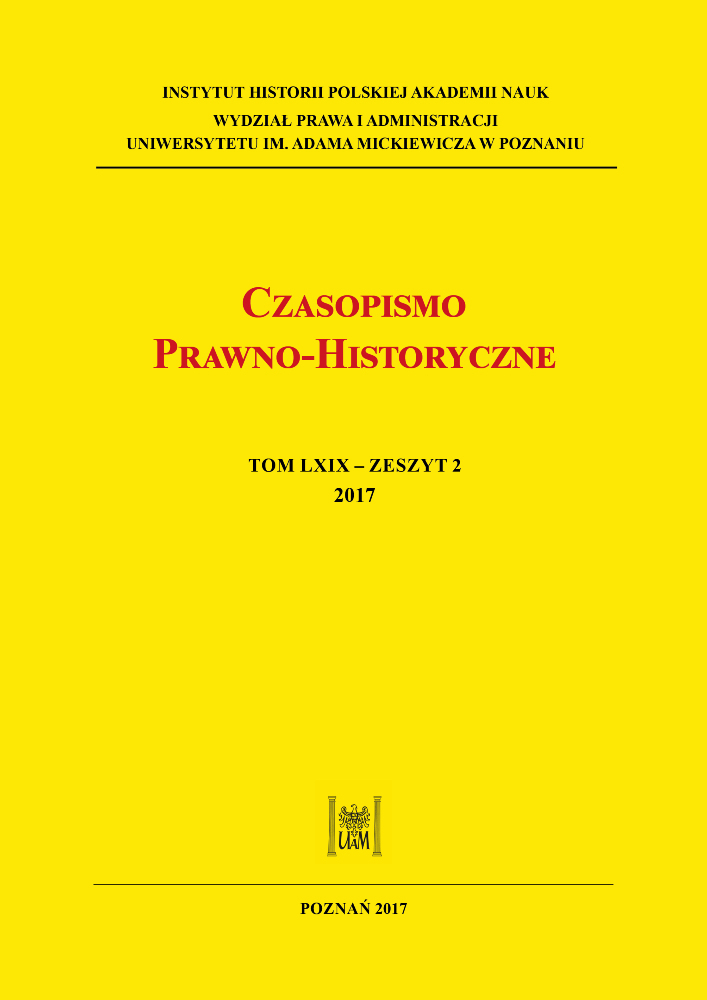Abstract
Cybernetics is a science devoted to control while law is one of the methods of social control. Cyberneticists’ interest in law as well as the interest in cybernetics exhibited by lawyers are both natural. The article describes the history of the development of human thought which finally led to the creation of cybernetics. The paper reaches as far back in time as Ancient Greece where the notions of power and governing were researched scientificallyand discussed publically. Conversely, the ancient countries of the Middle East treated the issues of power as magic and they were considered arcane knowledge. Furthermore, the article mentions the cybernetics concepts which Trentowski expressed in his treaty from 1843. Next, it contains a description of Wiener’s views on law. Wiener is considered to be the creator of cybernetics as a separate branch of science. Also the reasons behind fighting
cybernetics in the USSR were discussed as well as why it was promoted there afterwards. Moreover, publications on the subject of law and cybernetics by three Polish legal theorists (Studnicki, Kisza and Malinowski) were presented. The most important achievements and the main assumptions of the Polish school of cybernetics were delineated. It was first created by Marian Mazur and then further developed by Józef Kossecki. Also the views of some of the Polish cyberneticists on the subject of law were portrayed. The use of cybernetics by Polish forensic scientists was mentioned, especially by Mirosław Owoc. There is also included a reference to the most recent publications on the subject matter of law and cybernetics. Suitable juxtapositions, comparisons and summaries were made. Even though the article
concentrates on an antiquarian approach instead of a substantive one, it more than once emphasizes the advantages and disadvantages of each idea.
License

This work is licensed under a Creative Commons Attribution-NonCommercial-NoDerivatives 4.0 International License.




